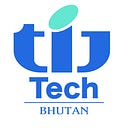Java Online Course Lesson 1 Part 1
For more details and informations, please refer the video link given below:
Video URL: https://youtu.be/cnf45Esh40I
For compiling and executing of Java program, please use the online java compiler:
URL: https://www.tutorialspoint.com/compile_java_online.php
Overview
1. Importance of core Java
2. Parts of Java
3. Java keywords (50)
4. Class elements
5. Java coding conventionsThis Tutorial will help you understand how to write java programming and, compile and execute java programming outputs, but before that we should be knowing some of the Basics on Java.
Java is the most popular digital application in web designing and it is preferred by high end users because of various purposes.
Importance of core Java
According to the SUN, 3 billion devices run on the Java language only.
Java is used :
To develop Desktop Applications, Web Applications, Enterprise Applications, Develop Mobile Applications, Embedded Systems, Smart Cards, Robotics, Games, etc. Parts of Java
1. J2SE/JSE (Java 2 Standard Edition)
#Design Build for Basic Java codes.
2. J2EE/JEE (Java 2 Enterprise Edition)
#Design Build on J2SE for development of Websites, Web Applications etc.
3. J2ME/JME (Java 2 Micro Edition)
#Design Build for developing Mobile Phones etc.Core Java vs Advance Java
Core Java is basically the basics of Java such as datatypes, syntax, objects etc.
Advance Java mainly deals with frameworks such as Spring, Hibernate etc. and deals with Database connection etc.
Keywords of Java (50)
Java has a set of keywords that are reserved words that cannot be used as variables, methods, classes, or any other identifiers.
Data types :
byte, short, int, long, float, double, char, Boolean (8)Flow control :
if, else, switch, case, default, for, while, do, break, continue (10) Exception handling :
try, catch, finally, throws, throw (5)Object level :
new, this, super, instanceof (4)Methods :
void, return (2)Java5 :
enum, assert (2)Unused :
goto, const (2)Source files :
class, extends, interface, implements, packages, import (6)Modifiers :
public, private, protected, final, static, abstract, synchronized, strictfp, volatile, transient, native (11)Predefined constants :
true, false, null (3)Reserved words (53) = Keywords (50) + constants (3)
Class Elements
1. Variables
#A piece of memory that can contain a data value (data type).2. Methods
#A block of code which only runs when it is called, and can pass data known as parameters into a method (Perform actions).3. Constructor
#A special method that is used to initialize objects.4. Instance block
#To initialize instance variables.5. Static block
#To initialize static variables.
Java coding conventions
It is the rules and regulations that we have to follow when writing java codes for making the codes reliability and easier to do maintenance.
1. Class :
String, StringBuffer, InputStreamReader2. Interface :
Serializable, Cloneable, RandomAccess3. Enum :
Enum, ElementType, RetentionPolicy4. Methods :
post(), charAt(), toUpperCase()5. Variables :
out, in, pageContex
